Subscribe: Apple Podcasts | Google Podcasts | Spotify | Stitcher | Blubrry | Email | TuneIn | RSS | More
This episode of the Crime Cafe podcast features my interview with crime writer Josh Cybulski.
Don’t miss our discussion of his debut novel, Second Story Work!
This is the Crime Cafe, your podcasting source of great crime, suspense and thriller writing. I’m your host Debbi Mack. Before I bring on my guest, I’ll just remind you that the Crime Cafe has two eBooks for sale: the nine book box set and the short story anthology. You can find the buy inks for both on my website, debbimack.com under the Crime Cafe link. You can also get a free copy of either book if you become a Patreon supporter. You’ll get that and much more if you support the podcast on Patreon, along with our eternal gratitude for doing so.
Check us out on Patreon: https://www.patreon.com/crimecafe
Debbi (00:54): But first, let me put in a good word for Blubrry podcasting.
I’m a Blubrry affiliate, but that’s not the only reason I’m telling you this. I’ve been using Blubrry Podcasting as my hosting service for my podcast for years and it’s one of the best decisions I ever made. They give great customer service, you’re in complete control of your own podcast, you can run it from your own website, and it just takes a lot of the work out of podcasting for me. I find for that reason that it’s a company that I can get behind 100% and say, “You should try this.” Try Blubrry. It doesn’t require a long-term contract, and it’s just a great company, period. It also has free technical support by email, video, and phone, so you can get a human being there. Isn’t that nice?
If you want to podcast, try out Blubrry. No long-term contract, excellent distribution, and great technical support, too, by email, video, and on the phone. I’ve included an affiliate link on this blog.
Here’s a PDF transcript of the interview!
Debbi: Hi everyone. Today, my guest comes to us from Canada, an awesome country with great writers and great TV shows, and the author of the crime novel, Second Story Work. One of those authors from Canada. It’s my pleasure to introduce my guest for this week, Josh Cybulski. Hi, Josh. How are you doing?
Josh: I’m great. How are you?
Debbi: Great. Excellent. Good. I love like your arrangement of posters back there. Very cool.
Josh: Oh, thank you. I have the poster for the book right there, and then a couple of my favorite movies—Back to the Future and Fight Club.
Debbi: Excellent. Two excellent choices, I have to say. For movies, for sure. Nice poster of the book, too.
Josh: Thank you.
Debbi: So, tell us about the novel. This is your first novel. What’s the book about?
Josh: Yeah. So Second Story Work as you mentioned, it’s my first novel. It’s about four friends who graduate from college in 2000—well, the end of 2007—and they move to Vancouver, British Columbia, which is on the other side of Canada from me to start their careers in the film industry. And if you remember anything about 2008, the entire economy tanked in 2008. So in the book, the characters can’t get work. Basically they move to Vancouver. They’re unable to get work, they can’t pay their bills. So at one point they’re presented with an opportunity to commit a crime that basically allows them to pay their bills and stay in Vancouver for a while. So they end up doing so, and from there, they basically blow through their money rather quickly and then they’re in the same position where they no longer have money to pay their bills. So once again, they turn to crime and it creates a snowball effect that carries you throughout the novel. With each crime comes an escalation, a brazenness and they get more and more brave, we’ll say, as they go through the book, and that’s pretty much the gist of it.
They’re unable to get work, they can’t pay their bills. So at one point they’re presented with an opportunity to commit a crime that basically allows them to pay their bills and stay in Vancouver for a while. So they end up doing so, and from there, they basically blow through their money rather quickly and then they’re in the same position where they no longer have money to pay their bills.
Debbi: Interesting. Would you describe the style as thriller or noir or somewhere in between?
Josh: Some people have said it’s really more of a thriller. Personally, I’ve referred to it as a neo-noir. It is sort of the anti-hero that’s become very popular in the last few years. So for anyone who watches TV, we have Walter White from Breaking Bad, the anti-hero Vic Mackey from The Shield which is a great television show in the mid-2000s. So the anti-hero has kind of become the thing and that’s sort of what I was going for with the four characters in Second Story Work. So yeah, I would definitely put it in the neo-noir category if I had to pick.
Some people have said it’s really more of a thriller. Personally, I’ve referred to it as a neo-noir. It is sort of the anti-hero that’s become very popular in the last few years.
Debbi: That’s a good category. I like that. It’s good in movies as well as books.
Josh: Absolutely.
Debbi: It’s an ensemble piece, kind of, of four characters, but is there a main character for you in these four?
Josh: Yeah, definitely. The main character’s name is Derek Sierzant. He’s the son of Polish immigrants, people who moved from Poland into the Ottawa valley, which is kind of central in Canada. He would be the main character and then he’s got three friends that he lives with, who basically go by nicknames. So there’s Messy, who’s also from the Ottawa valley and then Hecky, who is kind of from Northern Ontario, which is a really secluded area of Canada, and then lastly, there is R-Luv, who’s from Winnipeg, Manitoba, which is kind of a secluded city right in the middle of Canada. So those are your four main characters and then there’s tons of other characters that are more bit pieces, but those are your core four.
Debbi: You mentioned that he was raised, the main character, in a Polish community? Does that community kind of inform the book to any extent?
Josh: Yeah, actually. I grew up in a Polish community myself in the Ottawa valley. Outside of my hometown, you go and there’s a rather large Polish settlement, so that was always part of my culture growing up. I spent a lot of time going to little towns like that, that would have Polish pubs and they would serve Polish meals and stuff like that. So that was definitely something I wanted to bring from my heritage into the book. It’s funny, I spent a lot of time in those places and then realized like two years ago that I was actually Kashubian, which was kind of my whole ancestry was a bit of a lie when my brother and I actually started to look into it. Not a lie, but it was a little bit different than what we thought. Yeah, there’s a big Polish element that kind of infiltrates the book, so the main character Derrick, anytime he goes out to a bar or a pub, he always orders a Polish beer or a Polish vodka or something like that. And whenever he is cooking, he tends to cook Polish food. So it was one of those subtle things that I put in the book, but it was sort of, I guess, a tribute to my heritage.
Outside of my hometown, you go and there’s a rather large Polish settlement, so that was always part of my culture growing up. I spent a lot of time going to little towns like that, that would have Polish pubs and they would serve Polish meals and stuff like that. So that was definitely something I wanted to bring from my heritage into the book.
Debbi: That’s really cool. I’m actually in a writer’s group with somebody who has Polish ancestry. So it’s fascinating to hear this. What inspired you to write this book in particular?
Josh: There’s a number of things. My background actually was originally in journalism and then I ended up going to film school and I myself tried to break into the film industry. I didn’t really have much luck, which was sort of what inspired me to write the book. I wanted to write a story about my struggle, and as I started to research more and more for the book, it became less about my struggle and just more about fictional characters in a fictional world of Vancouver. So also living in Vancouver, kind of seeing the crime that was out there and the drug war that was going on during the time I lived there, I don’t know why, but it spoke to me. I found it very interesting to see a lot of people my age fall into that world, and I actually had my roommate become … he basically joined a gang. He was out of work. He needed money. He joined a gang and became a drug dealer. I could not fathom being that desperate for money that I would join a life like that, but he did. And that was kind of what inspired my journey to write this book.
I wanted to write a story about my struggle, and as I started to research more and more for the book, it became less about my struggle and just more about fictional characters in a fictional world of Vancouver.
Debbi: That’s really something. I mean, when you see that happen to somebody you know. Do you have any plans to write a sequel or is this a standalone?
Josh: It’s funny you say that, because I’ve had so many people ask me to write a sequel which I never imagined when I wrote the original book, because I thought I’d be lucky to sell a hundred copies of it. So I never expected one person to be like, oh, you should write a sequel, so that really shocks me that people want that. I don’t have any plans to write one. I have thought about actually writing a prequel without giving too much away about Second Story Work itself. There is sort of a a story that gets talked about a lot in the book that I’ve thought about actually writing sort of the origin story for. I don’t know if I could because a lot of it would take place in Poland and I don’t actually speak Polish, but that is something I’ve kind of milled about and thought maybe one day I’ll do that. But I think I need to write some other books first and sort of develop my skills a little a bit more before I try to tackle something like that.
Debbi: That’s cool. Yeah. I understand where you’re coming from there. What are you working on now?
Josh: I actually just finished a manuscript that I’ve been shopping around. I’m trying to get an agent. I did my first book self-published. I enjoyed the process, but I made a lot of mistakes throughout as any new author is going to do. One of the things I didn’t do, I never tried to get an agent or a publisher or anything like that, so I kind of felt for this one, I owe it to myself to at least try. It’s almost impossible to get one, but I told myself once I finished this, I would give myself a year to see if I can get anywhere, and from there, if it doesn’t work out, I’ll just self-publish again. But I do have a second manuscript completed. It’s called Clean, Juxin. Basically, it’s about six friends who are all police officers in Pittsburgh and every year, they go on an annual camping trip. And while they’re on their camping trip, they rob one bank together. So the clean part is them being officers. The Juxin part is them going on a 24-hour crime spree every year. So that’s sort of the basis for the second manuscript that I’ve written.
I do have a second manuscript completed. It’s called Clean, Juxin. Basically, it’s about six friends who are all police officers in Pittsburgh and every year, they go on an annual camping trip. And while they’re on their camping trip, they rob one bank together.
Debbi: You seem to like ensemble type casts in your books.
Josh: Yeah, absolutely. This one’s even more so. This one really doesn’t have a central character. Everybody’s kind of a big part of it. I think I write that cause that’s what I enjoy to watch or enjoy reading, so even some of my favorite books, one of my favorite books growing up was a book called Less Than Zero by Bret Easton Ellis, and that’s an ensemble. It’s three friends. As I got more into TV and movies, I just really like the idea of different characters. That’s sort of how real life is. A lot of people, we kind of think the world revolves around us, but there’s always people sort of coming in and out of our lives. So I feel like an ensemble piece is really more true to real life. That’s why I enjoy them.
Debbi: In my opinion, it’s also very good for something like television or movies. Extremely good.
Josh: Yeah. I find it actually makes it easier to write because you can have all these intersecting stories and you’re not sort of constantly having to introduce characters for your main character to interact with, and you can also create a lot of really interesting drama. Or if you’re writing comedy, you can create a lot of interesting comedy just by having those interactions. And the fact that the characters know how to push each other’s buttons, or if they’re friends, they know how to sort of have emotional conversations and those types of things. So it does make for interesting reading or watching whatever you happen to be doing.
About writing from multiple perspectives: “I find it actually makes it easier to write because you can have all these intersecting stories and you’re not sort of constantly having to introduce characters for your main character to interact with, and you can also create a lot of really interesting drama. Or if you’re writing comedy, you can create a lot of interesting comedy just by having those interactions.”
Debbi: Yes, definitely. What is your writing schedule like?
Josh: Well, I have some young children, so it’s not as much writing as it used to be, but generally I tend to write in the evenings after everybody has fallen asleep. I like to write late at night, so usually by 10 o’clock at night, my wife and my kids are asleep. That’s usually the time where I’ll sit down between 10:00 PM and midnight and try to bang some stuff out in that period of time. I wrote most of Second Story Work between probably 12:00 AM and 3:00 AM, so a lot of it was written through the night. But now with kids who like to get up at six in the morning, I’m not going to stay up till four writing. So I’ve had to adapt a little bit, but yeah, late night writing sessions are definitely what I try to do and I try to write daily. I’ve read a lot of writers who say they don’t find it effective to write daily cause they find they’re kind of grinding it out. For me, I try to write at least two things at a time so that if I’m not feeling one on one particular night, then I can kind of turn to the other and work on that so that it doesn’t feel like so much of a grind. But yeah, I try to write every day for at least two hours if possible and a great deal of switching back and forth.
I try to write at least two things at a time so that if I’m not feeling one on one particular night, then I can kind of turn to the other and work on that so that it doesn’t feel like so much of a grind. But yeah, I try to write every day for at least two hours if possible and a great deal of switching back and forth.
Debbi: That’s a good plan. I mean, just have a time that you always do it and just keep doing it. What books do you like to read for pleasure?
Josh: It’s funny, I was talking to some people this morning about this. I read a pretty wide variety of books. I like a lot of sports autobiographies, so that tends to be my nonfiction. I have Dave Grohl’s The Storyteller right now, so a lot of musical nonfiction, as well. Autobiography, things like that. In terms of fiction, definitely crime. I read a lot of crime dramas. I mentioned Less Than Zero. I really enjoyed a lot of novels that came from the 80s. One of my favorite novels was Blood Meridian by Cormac McCarthy. so in that sort of vein I’ve always enjoyed those types, but yeah, mostly autobiographies and crime drama, crime thriller, that kind of thing.
Debbi: If your book were adapted for the screen, who would you imagine playing the main characters?
Josh: Well, it’s funny you ask. I have a writing partner and we’re trying to get Second Story Work made into a Canadian TV show. I actually just finished my treatment on Tuesday this week, a couple days ago.
Debbi: Which was fun, huh?
Josh: I basically spent the last two months writing this thing. It’s a real grind. It is a real grind. I definitely would much rather just write a book or screenplay or something like that. I’ve thought a lot about this in terms of who I would want to play the main character. If it got made into a Canadian show, I don’t know because we would not have the budget to make it happen. If it was a Canadian show, I would want Billy Campbell to play the main character’s father. Billy Campbell was in The Killing and he made a great Canadian show called Cardinal. He’s a really fine actor who I would want to play the main character’s dad, but I don’t know who would actually play the main character if it was Canadian.
If it was American and you had the bigger budget and money being no object, oh boy, I always wrote this envisioning ….it took me so long to write it. I always wrote it envisioning Ryan Gosling in the main role, but now he’s too old to actually do that. There is …. what’s the kid’s name? I can’t remember the actor’s name. He was in Place Beyond the Pines, but he’s a younger guy. I’ll have to actually look up his name, but he’s kind of who I saw. He has sort of that James Dean kind of vibe to him. I guess he would fit, but I don’t actually know who would play the main character. That’d be a tough one. If I could do it in the states, I would have probably Walton Goggins play the father, the main character’s father, if I had my druthers.
Debbi: Nice choice. He’s a good actor. I like him a lot.
Josh: Oh, he’s phenomenal. He made a movie here right before COVID hit two years ago he made with Mel Gibson. They shot it down the street from my house up here. Fatman, him and Mel Gibson. It was like a R-rated Santa Claus type movie, but yeah, he’s fun. He’s phenomenal.
Debbi: Yeah. I’ve loved him in everything I’ve seen him in—The Shield, that other thing he was in, the Elmore Leonard.
Josh: Justified.
Debbi: Justified! Thank you.
Josh: That’s a phenomenal show. Boyd Crowder. He’s fantastic in that. I have to look up this actor’s name.
Debbi: Let’s see. I was going to ask you about research. What sort of research do you do, and do you do a lot of research before you write?
Josh: Yeah, so for this particular… for Second Story Work, I must have done hundreds of hours of research. So I mentioned that it kind of started off as being about my journey in the film industry and it sort of delved into something else. That just came from falling into a rabbit hole of the Vancouver drug war and sort of learning about who the cast of characters was, how the different gangs kind of interacted, who got involved with the police. And then from there, it just spiraled into learning about just the sheer amount of chaos that they caused—the murders, the robberies, all these things. So I spent tons of hours just getting into that whole world for Second Story Work. So that was the Vancouver drug world, I suppose.
[F]or Second Story Work, I must have done hundreds of hours of research. So I mentioned that it kind of started off as being about my journey in the film industry and it sort of delved into something else. That just came from falling into a rabbit hole of the Vancouver drug war and sort of learning about who the cast of characters was, how the different gangs kind of interacted, who got involved with the police.
For my second manuscript, I researched a lot about police, obviously writing a story about corrupt police. I researched a lot of about how police detectives actually go about their work, how a beat cop in different cities may function. The city of Pittsburgh is where this novel is based, so just how a beat cop in Pittsburgh would operate versus one in say, New York City or Boston or something like that. So those are the types of things I tend to research.
Having not been involved much in the world of crime, I don’t know a whole lot about it. So I find that if I’m going to get into characters, I really need to dig into their background. I also like to sort of have a character fleshed out before I actually start writing my full story. I don’t really branch out where the story’s going to go, but I like to know who the character is before I start, so that when I start to write the story and I get into various scenes, I can sort of go back to my document and be like, okay, well, this is how this character would act in an authentic way for that particular character and I can sort of flush it out on the page or whatever it happens to be. So that’s sort of what my research background would be.
Debbi: What advice would you give to someone who would like to write for a living?
Josh: Well, I’d love them to give me that advice myself. That’s always been my dream to write full time. I haven’t realized it yet, but I do think I will realize it eventually. My whole thing has always been to just write, whether it’s going to be good or whether it’s going to be bad. If you write things that are bad for long enough, eventually you’re going to figure out how to write stuff that’s good, and I think that’s really what happened to me. I look back on some of the stuff I wrote 10, 15 years ago and it was so bad. I’m just like, thank goodness none of this ever was a hit or made me into a success cause I’d be embarrassed looking back on it and knowing that the world saw it. But I think the thing is just write. Grind it out until you figure it out and make your mistakes when people aren’t watching you so that later on, if you do find something that sticks, you’ve got a good idea of how to write the next thing and the next thing and have it actually be successful.
If you write things that are bad for long enough, eventually you’re going to figure out how to write stuff that’s good, and I think that’s really what happened to me. … But I think the thing is just write. Grind it out until you figure it out and make your mistakes when people aren’t watching you so that later on, if you do find something that sticks, you’ve got a good idea of how to write the next thing and the next thing and have it actually be successful.
I’ve been asked this before, but I kind of relate it to music a little bit. There would be a lot of bands that would come along in the late 90s that they had written one hit song and that was kind of it. They didn’t really know the craft of songwriting or the craft of performing and things like that, so their song would hit. That would be it. They didn’t know how to write the next song, and that would be the end of their career. And I never wanted that to be my career writing. I wanted to be able to write, and if it hit, I wanted to be able to write the next one and the next one and have them actually be successful. I think that’s why if you grind it out at first and just learn the craft of writing, it’ll be helpful if you ever do hit, then you’ll be able to write that next successfully as well.
Debbi: Sound advice, really. I have to ask, why did you choose Pittsburgh as the location for this book you were talking about? Cause I’ve lived near Pittsburgh for a while.
Josh: Oh really? Oh, that’s cool.
Debbi: Monroeville.
Josh: Oh, I’ve got some friends in Monroeville.
Debbi: Cool.
Josh: Very cool. I grew up a Pittsburgh Penguins fan since I was three years old, so I’ve always been kind of enamored with the city and the fact that it was … I came from a very blue collar place. Pittsburgh was always the blue collar city of the States, the Steel City, all that kind of stuff. And then for my bachelor party before I got married, my friends actually took me to Pittsburgh and I’d never been at that point in time. And when I was there, I just fell in love with the city. I don’t know. I always had a connection with it and while I was there, I had not written anything into my book yet about Pittsburgh or anything like that. And when I got there, I just started writing down a lot of notes about what I saw, what I liked about the city, and I actually included quite a bit of that in Second Story Work. So there are some scenes in Pittsburgh in that book.
Then really, I went back a year later. Saw the city again a couple years before COVID hit. And then I started to meet lot of friends and I started to get a pretty good idea of what Pittsburgh was like, and I just fell in love with the city. I like so much about it. I think it’s a beautiful place. I think it’s a very underappreciated city in the United States. Most people, when they talk about their favorite cities in the States, it’s never Pittsburgh. So that was always a big part of it for me. And then of course having friends there and stuff, if I’m trying to figure out like a location, I can be like, Hey, do you mind running down and just seeing what, writing a little bit about this place? Is it a good place for me to put this scene in the book there, that kind of thing? It makes it easier for research.
I didn’t really want to do another book in Canada just because it kind of broadens your audience if you go outside of Canada. Everybody wants to read about the United States, so I was like, okay, this makes sense for me.
Debbi: I find that amusing somehow. I mean, it’s just that I love Pittsburgh. I think it is a really cool city. So is there anything else you’d like to tell us before we finish up?
Josh: You know, it’s funny—going back to the Pittsburgh thing. My dad actually worked in Johnstown years ago in the mid-2000s, and that was another thing that kind of brought me a connection with Pittsburgh was that my father was down there all the time for work. He passed away in 2011 when I had just started to write my book. I started writing this book in 2009. I completed it in 2020, so it took me almost 12 years to write it, but he loved Pittsburgh too. Anytime he would go there, he’d always be pretty excited about trying the food and seeing different sites and stuff like that. He loved it, so it was a little bit of a nod to him as well. The fact that he liked it so much, and then I went there and I of course loved it, so I kind of wanted to include that. There’s actually a lot of little bits of the book that are kind of a tribute to my dad, so that was kind of part of the Pittsburgh thing, too.
Debbi: That’s really nice. That’s lovely. Well, I want to thank you so much for being here and sharing this with us today, Josh. Thank you.
Josh: Yeah, thanks so much. I really appreciate you having me, and if people want to follow me, they can follow me on into Instagram @authorjoshcybulski, and I’m also on Facebook as well. I have Facebook group Author Josh Cybulski. Thanks again.
Debbi: Very cool. Now are you going to build a website at some point or have someone build a website? she asked.
Josh: Oh yeah. It’s funny you mentioned that. When I put the first book out, one of my friends was like, are you going to build a website? I’m like, oh, I really feel like I should have two books before I do that. And I’m like, after I do the book, what am I going to put on it? And he’s like, well, there’s lots of things you could do so think about it. So I have thought about it for a while. I am going to do one pretty soon cause I’m also doing a podcast with a friend that is probably going to start in April, I would say. It’ll be called Second Story … no Work, but yeah, we’re going to probably do a website when we put that guy out. So in a month or two, we should have that up and ready to go.
Debbi: Very good. Very cool. Well again, thank you so much, and I will just say then thank you to all of you listeners who are listening right now for making this part of your day. We really appreciate it. Please leave a review on iTunes, Stitcher, or wherever you listen to podcasts, and check out our Patreon page. With that, I’ll just say our next guest will be Ben Westerham and he’ll be coming to us from yet another country, the UK. Perhaps I’ll wear a Doctor Who T-shirt that day. We’ll see. In any case, take care and happy reading.
*****
Check us out on Patreon!




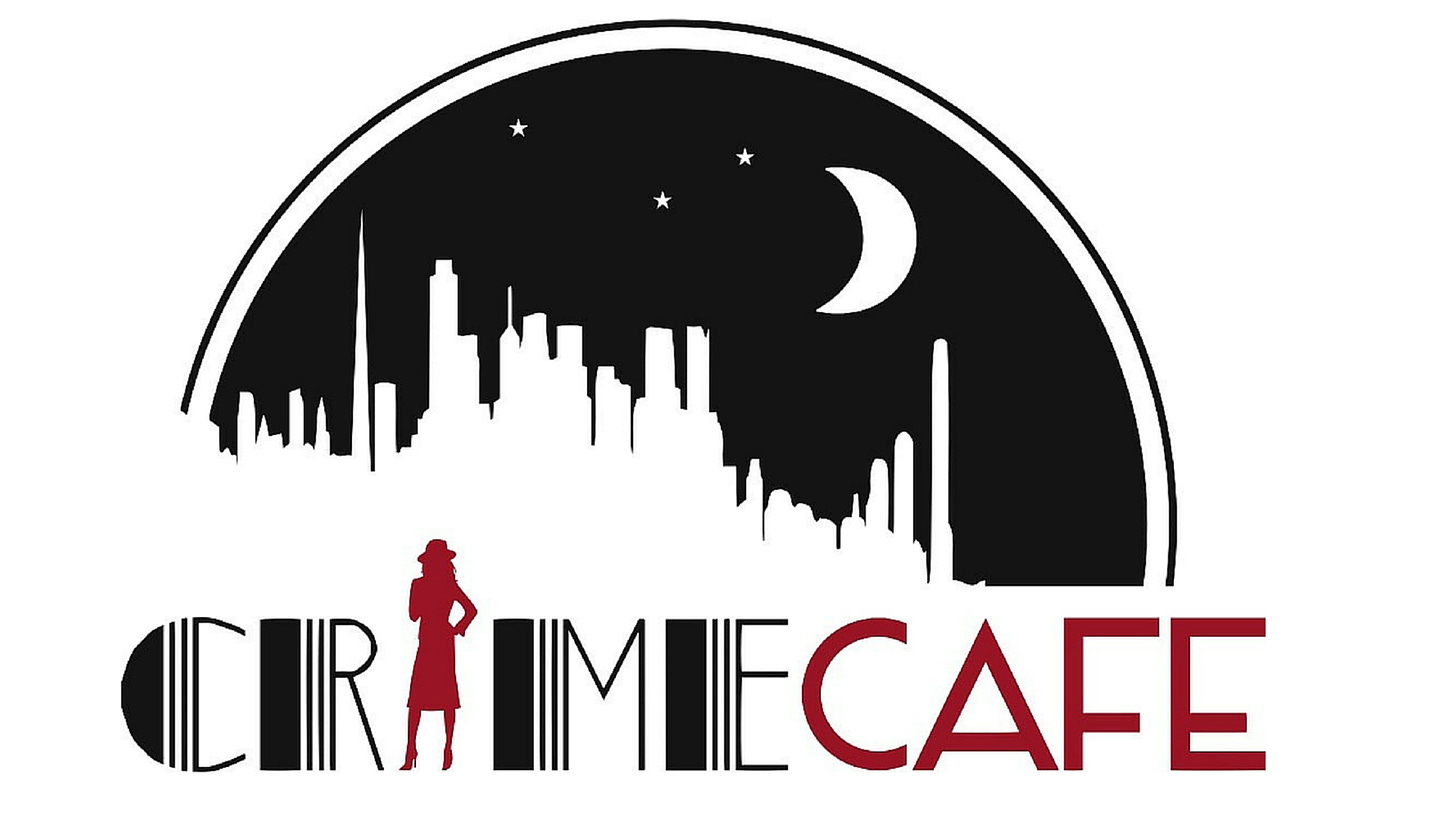





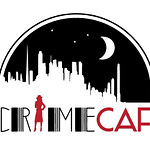
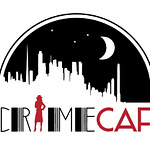

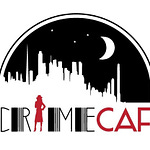
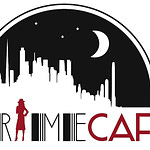
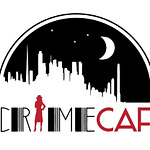
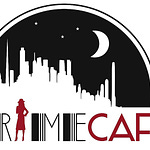
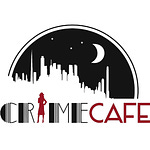
S. 7, Ep. 20: Interview with Crime Writer Josh Cybulski